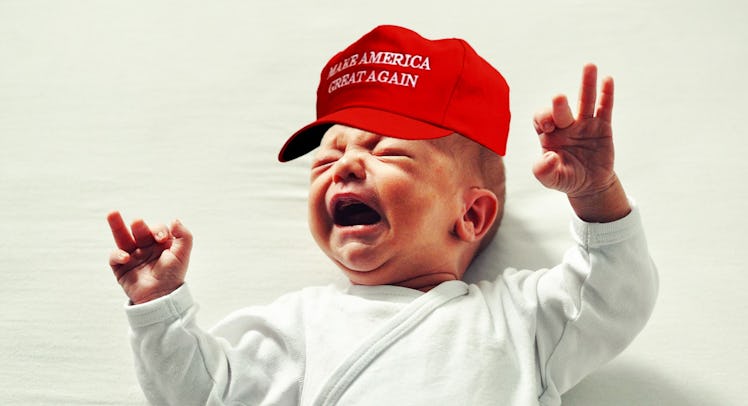Breastfeeding Scandal Shows ‘America First’ Means Putting Kids Second
When U.S. foreign policy is centered on the interests of American industry the choices can put kids around the world in real danger.

The United States delegation to last spring’s United Nations-linked World Health Assembly offered unprecedented opposition to a non-binding resolution meant to encourage breastfeeding, according to a damning recent report by The New York Times. The opposition was so vigorous, in fact, that U.S. delegates threatened to end military aid and trade support to Ecuador if their delegates introduced the resolution, which also discouraged the promotion of potentially dangerous infant nutrition products. After the fact — and after the resolution was finally sponsored by Russia and passed by the assembly — members of the U.S. delegation justified their actions by saying they were attempting to be sensitive to mothers physically unable to breastfeed. More plausible, the strong-arm tactics were employed in support of American companies manufacturing infant nutrition products (China’s current demand for American formula sits at 700,000 metric tons a year and is likely to double in no time.)
The diplomatic snafu seems to supply further proof that the Trump administration and the State Department are deeply committed to an “America First” policy. The incident makes it clear that putting America first necessitates putting the majority of the world’s children second.
That the Trump administration would seek to protect American business interests above the health interests of the world’s children shouldn’t be particularly shocking to anyone. No one within the Trump administration is being hypocritical on this — except in being disingenuous about motives. This is precisely the sort of behavior Trump promised in his campaign rallies, and many of his supporters may see the Times report as evidence of his commitment to his original project. Others — the naive, the sentimental, and those uncomfortable with the idea of a foreign policy at odds with the interests of babies — might find it hard to reconcile the idea of America as a moral leader with the idea of America as a country unwilling to support something as basic and good as breastfeeding.
Ultimately, that reconciliation is not possible. It’s clear the American diplomats who pressured Ecuador were not engaged in moral leadership. They were engaged in marketing as international interference. When you stop and consider the undeniable good breastfeeding gives moms and babies, opposition to policies or statements (no matter how ineffectual) promoting the behavior is almost laughably malign. Breast milk, particularly in infancy, gives a child both nutrition and immune support, helping them grow and protecting them from disease. Breastfeeding is also beneficial for the health of mothers who experience lower rates of ovarian and breast cancers, and who experience less stress and better brain health due to hormonal releases.
Is it frustrating for some mothers who can’t, for economic or physical reasons, breastfeed? Yes. Absolutely. That said, one would hope this minority wouldn’t begrudge other women the benefits of nursing.
It’s worth pointing out here that the biggest emerging markets for infant nutrition products like formula are in developing nations. These are places where formula use, in lieu of breastfeeding, could be deadly. Not only does formula use require access to clean water, which is a not a given in developing nations, but the loss of the immune support from breast milk can make babies more vulnerable to life-threatening disease. Make no mistake, America’s anti-breastfeeding stance does put babies at risk in service of corporate profits. Maybe not many. Definitely some.
Notably, the Times report arrives as inadequate care and record keeping has forced the Trump White House to request extra time to reconnect immigrant children with the mothers and fathers they were torn from. This is not a coincidence. Aid has been cut as well. Mothers who used to receive American support now don’t. America first has been and will continue to be felt by parents around the world — and it will continue to affect their children.
Importantly, the modern age isn’t the first time we’ve seen America First policies harm the world’s children. In a seemingly unrelated story this week, it was revealed that Anne Frank’s family was unable to find asylum in America at the start of World War II in Europe due to American immigration policies. We know how that turned out. It’s not an apt parallel with the breastfeeding fiasco, but it is something the keep in mind. Nationalism and protectionism are all-consuming and morally compromising.
Parents know that when they lose credibility, they have to work very hard to get it back. American diplomats have long known the same. The breastfeeding scandal isn’t going to lead to war, but it will lead to slippage. America simply cannot lead by example if it is unwilling to actually set an example.
This article was originally published on